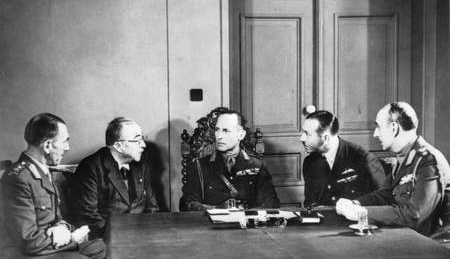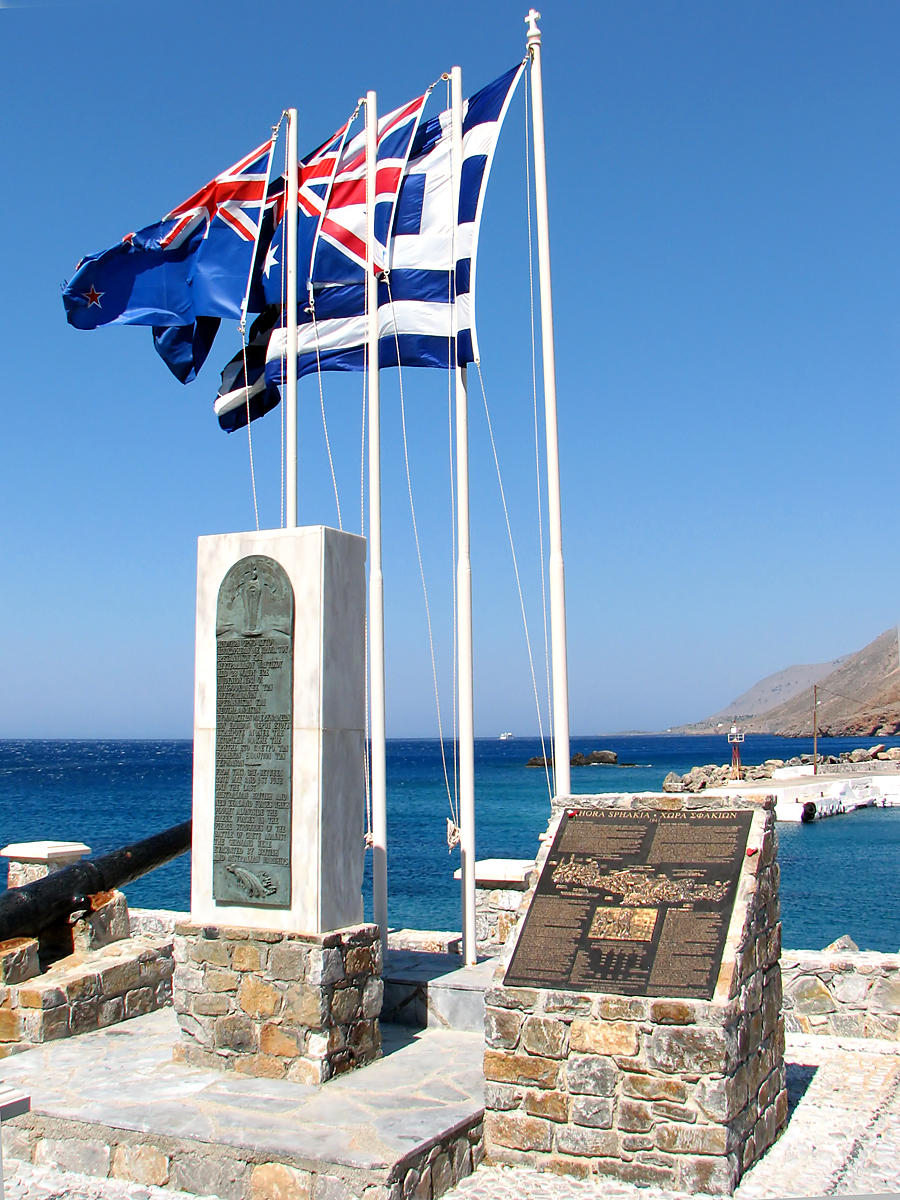|
Michael Gambier-Parry
Major-General Michael Denman Gambier-Parry (21 August 1891 – 30 April 1976) was a senior British Army officer who briefly commanded the 2nd Armoured Division during the Western Desert campaign of the Second World War. Early life and family The Gambier-Parrys of Highnam Court, Gloucestershire were an artistic and military family (see Thomas Gambier Parry and the latter's son, eminent composer Sir Hubert Parry). His uncle Ernest Gambier-Parry was a major in the army sent to Egypt to avenge the death of General Gordon and wrote a book (''Suakin'', 1885) about his experiences. Michael's father was architect Sidney Gambier-Parry. Military career Educated at Eton College, Gambier-Parry entered the Royal Military College, Sandhurst and was commissioned into the Royal Welch Fusiliers in March 1911. He served in the First World War in France (awarded the Military Cross in 1916) and in the Gallipoli campaign and then in the Mesopotamia campaign. After returning to Sandhurst an ... [...More Info...] [...Related Items...] OR: [Wikipedia] [Google] [Baidu] |
Philip Neame
Lieutenant General Sir Philip Neame, (12 December 1888 – 28 April 1978) was a senior British Army officer and a recipient of the Victoria Cross, the highest award for gallantry in the face of the enemy that can be awarded to British and Commonwealth forces, and the winner of an Olympic Games gold medal; he is the only person to achieve both distinctions. Early life and military career Philip Neame was born on 12 December 1888 in Faversham in the County of Kent, the son of Kathleen Neame (née Stunt) and Frederick Neame (b. 1847). He received his education at Cheltenham College, and the British Army's Royal Military Academy at Woolwich, Kent. Upon graduating from the Royal Military Academy, Neame received a commission as a second lieutenant into the Royal Engineers in July 1908. He was promoted to lieutenant in August 1910, whilst serving with the 15th Field Company. First World War The declaration of war in August 1914 (see British entry into World War I) found Neame with t ... [...More Info...] [...Related Items...] OR: [Wikipedia] [Google] [Baidu] |
Hubert Parry
Sir Charles Hubert Hastings Parry, 1st Baronet (27 February 18487 October 1918) was an English composer, teacher and historian of music. Born in Richmond Hill in Bournemouth, Parry's first major works appeared in 1880. As a composer he is best known for the choral song "Jerusalem", his 1902 setting for the coronation anthem "I was glad", the choral and orchestral ode '' Blest Pair of Sirens'', and the hymn tune "Repton", which sets the words "Dear Lord and Father of Mankind". His orchestral works include five symphonies and a set of Symphonic Variations. He also composed the music for ''Ode to Newfoundland'', the Newfoundland and Labrador provincial anthem (and former national anthem). After early attempts to work in insurance at his father's behest, Parry was taken up by George Grove, first as a contributor to Grove's massive '' Dictionary of Music and Musicians'' in the 1870s and '80s, and then in 1883 as professor of composition and musical history at the Royal College of ... [...More Info...] [...Related Items...] OR: [Wikipedia] [Google] [Baidu] |
Military History Of Greece During World War II
The military history of Greece during World War II began on 28 October 1940, when the Italian Army invaded Greece from Albania, beginning the Greco-Italian War. The Greek Army temporarily halted the invasion and pushed the Italians back into Albania. The Greek successes forced Nazi Germany to intervene. The Germans invaded Greece and Yugoslavia on 6 April 1941, and overran both countries within a month, despite British aid to Greece in the form of an expeditionary corps. The conquest of Greece was completed in May with the capture of Crete from the air, although the ''Fallschirmjäger'' (German paratroopers) suffered such extensive casualties in this operation that the Oberkommando der Wehrmacht (German High Command) abandoned large-scale airborne operations for the remainder of the war. The German diversion of resources in the Balkans is also considered by some historians to have delayed the launch of the invasion of the Soviet Union by a critical month, which proved disastrous ... [...More Info...] [...Related Items...] OR: [Wikipedia] [Google] [Baidu] |
Second World War
World War II or the Second World War, often abbreviated as WWII or WW2, was a world war that lasted from 1939 to 1945. It involved the vast majority of the world's countries—including all of the great powers—forming two opposing military alliances: the Allies and the Axis powers. World War II was a total war that directly involved more than 100 million personnel from more than 30 countries. The major participants in the war threw their entire economic, industrial, and scientific capabilities behind the war effort, blurring the distinction between civilian and military resources. Aircraft played a major role in the conflict, enabling the strategic bombing of population centres and deploying the only two nuclear weapons ever used in war. World War II was by far the deadliest conflict in human history; it resulted in 70 to 85 million fatalities, mostly among civilians. Tens of millions died due to genocides (including the Holocaust), starvation, ma ... [...More Info...] [...Related Items...] OR: [Wikipedia] [Google] [Baidu] |
War Office
The War Office was a department of the British Government responsible for the administration of the British Army between 1857 and 1964, when its functions were transferred to the new Ministry of Defence (MoD). This article contains text from this source, which is available under th Open Government Licence v3.0 © Crown copyright It was equivalent to the Admiralty, responsible for the Royal Navy (RN), and (much later) the Air Ministry, which oversaw the Royal Air Force (RAF). The name 'War Office' is also given to the former home of the department, located at the junction of Horse Guards Avenue and Whitehall in central London. The landmark building was sold on 1 March 2016 by HM Government for more than £350 million, on a 250 year lease for conversion into a luxury hotel and residential apartments. Prior to 1855, 'War Office' signified the office of the Secretary at War. In the 17th and 18th centuries, a number of independent offices and individuals were re ... [...More Info...] [...Related Items...] OR: [Wikipedia] [Google] [Baidu] |
Staff College, Camberley
Staff College, Camberley, Surrey, was a staff college for the British Army and the presidency armies of British India (later merged to form the Indian Army). It had its origins in the Royal Military College, High Wycombe, founded in 1799, which in 1802 became the Senior Department of the new Royal Military College. In 1858 the name of the Senior Department was changed to "Staff College", and in 1870 this was separated from the Royal Military College. Apart from periods of closure during major wars, the Staff College continued to operate until 1997, when it was merged into the new Joint Services Command and Staff College. The equivalent in the Royal Navy was the Royal Naval Staff College, Greenwich, and the equivalent in the Royal Air Force was the RAF Staff College, Bracknell. Origins In 1799, Colonel John Le Marchant submitted a proposal to the Duke of York, the Commander-in-Chief of the Forces, for a Royal Military College. A private officer training school, based on the id ... [...More Info...] [...Related Items...] OR: [Wikipedia] [Google] [Baidu] |
Mesopotamia Campaign
The Mesopotamian campaign was a campaign in the Middle Eastern theatre of World War I fought between the Allies represented by the British Empire, troops from Britain, Australia and the vast majority from British India, against the Central Powers, mostly the Ottoman Empire. Background The Ottoman Empire had conquered the region in the early 16th century, but never gained complete control. Regional pockets of Ottoman control through local proxy rulers maintained the Ottomans' reach throughout Mesopotamia (modern Iraq). With the turn of the 19th century came reforms. Work began on a Baghdad Railway in 1888; by 1915 it had only four gaps, and travel time from Istanbul to Baghdad had fallen to 21 days. The Anglo-Persian Oil Company (APOC) had obtained exclusive rights to petroleum deposits throughout the Persian Empire, except in the provinces of Azerbaijan, Ghilan, Mazendaran, Asdrabad, and Khorasan.The Encyclopedia Americana, 1920, v.28, p.403 In 1914, months before the war b ... [...More Info...] [...Related Items...] OR: [Wikipedia] [Google] [Baidu] |
First World War
World War I (28 July 1914 11 November 1918), often abbreviated as WWI, was one of the deadliest global conflicts in history. Belligerents included much of Europe, the Russian Empire, the United States, and the Ottoman Empire, with fighting occurring throughout Europe, the Middle East, Africa, the Pacific, and parts of Asia. An estimated 9 million soldiers were killed in combat, plus another 23 million wounded, while 5 million civilians died as a result of military action, hunger, and disease. Millions more died in genocides within the Ottoman Empire and in the 1918 influenza pandemic, which was exacerbated by the movement of combatants during the war. Prior to 1914, the European great powers were divided between the Triple Entente (comprising France, Russia, and Britain) and the Triple Alliance (containing Germany, Austria-Hungary, and Italy). Tensions in the Balkans came to a head on 28 June 1914, following the assassination of Archduke Franz Ferdina ... [...More Info...] [...Related Items...] OR: [Wikipedia] [Google] [Baidu] |
Royal Military College, Sandhurst
The Royal Military College (RMC), founded in 1801 and established in 1802 at Great Marlow and High Wycombe in Buckinghamshire, England, but moved in October 1812 to Sandhurst, Berkshire, was a British Army military academy for training infantry and cavalry officers of the British and Indian Armies. The RMC was reorganised at the outbreak of the Second World War, but some of its units remained operational at Sandhurst and Aldershot. In 1947, the Royal Military College was merged with the Royal Military Academy, Woolwich, to form the present-day all-purpose Royal Military Academy Sandhurst. History Pre-dating the college, the Royal Military Academy, Woolwich, had been established in 1741 to train artillery and engineer officers, but there was no such provision for training infantry and cavalry officers. The Royal Military College was conceived by Colonel John Le Marchant, whose scheme for establishing schools for the military instruction of officers at High Wycombe and Great M ... [...More Info...] [...Related Items...] OR: [Wikipedia] [Google] [Baidu] |
Eton College
Eton College () is a public school in Eton, Berkshire, England. It was founded in 1440 by Henry VI under the name ''Kynge's College of Our Ladye of Eton besyde Windesore'',Nevill, p. 3 ff. intended as a sister institution to King's College, Cambridge, making it the 18th-oldest Headmasters' and Headmistresses' Conference (HMC) school. Eton is particularly well-known for its history, wealth, and notable alumni, called Old Etonians. Eton is one of only three public schools, along with Harrow (1572) and Radley (1847), to have retained the boys-only, boarding-only tradition, which means that its boys live at the school seven days a week. The remainder (such as Rugby in 1976, Charterhouse in 1971, Westminster in 1973, and Shrewsbury in 2015) have since become co-educational or, in the case of Winchester, as of 2021 are undergoing the transition to that status. Eton has educated prime ministers, world leaders, Nobel laureates, Academy Award and BAFTA award-winning actors, and ge ... [...More Info...] [...Related Items...] OR: [Wikipedia] [Google] [Baidu] |








